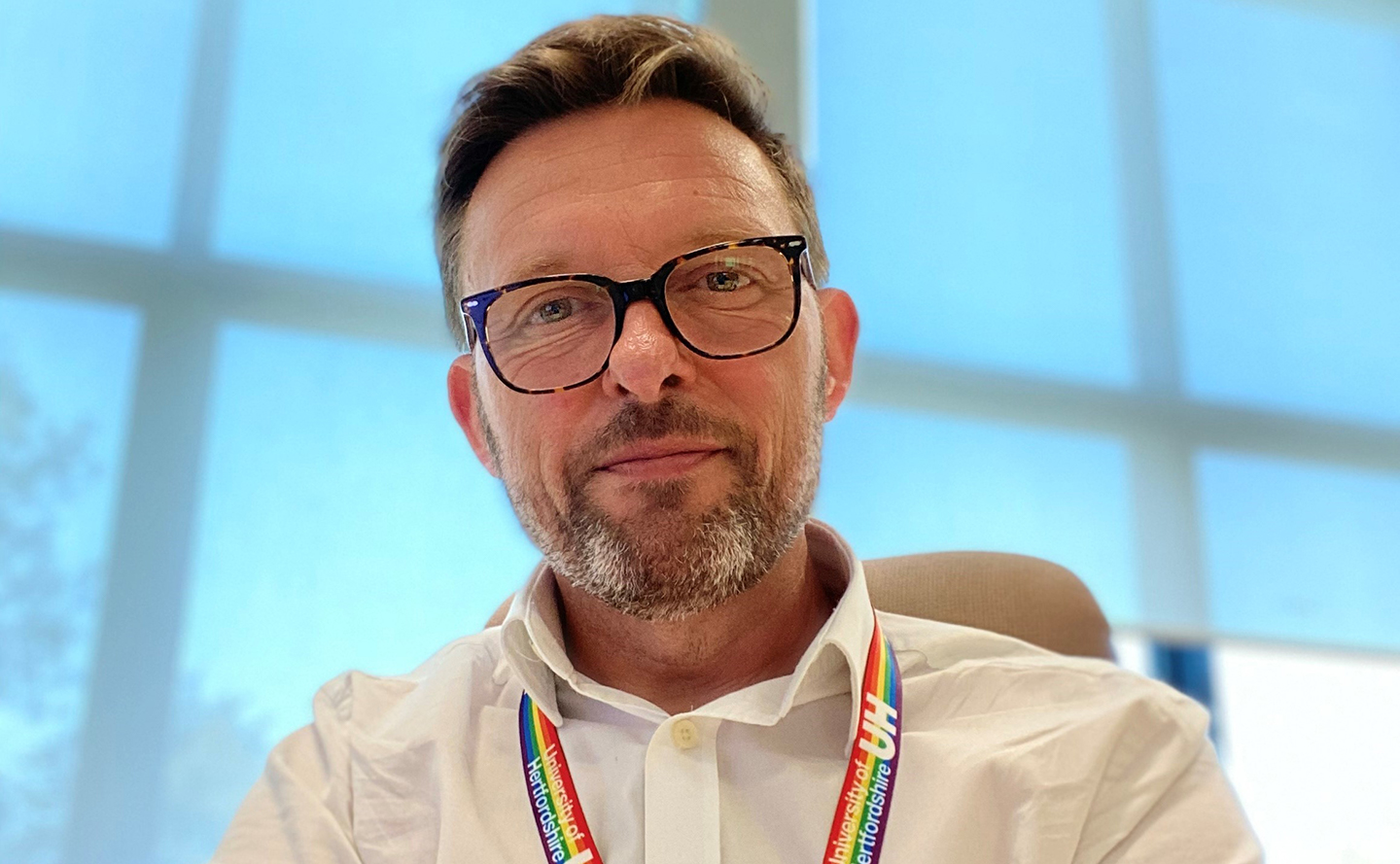Matthew Weait
Meet our Deputy Vice-Chancellor, Matthew Weait. Matthew explains how he 'fought back' against homophobia in school by achieving the grades he needed to study at university. He talks about the role higher education has to promote inclusive communities to ensure that 'everyone, whoever they are, can flourish'.

Life at Herts
Before working at Herts, I’d been impressed by the University’s publicly stated ambitions to be an inclusive working environment. “Building Community” is one of its core strategic themes, and it’s one that resonated with me. I’d had the privilege of being the Athena SWAN Champion in my previous job, and of working in Parliament a number of years ago on equalities and human rights issues. It has always been important to me to work somewhere that is committed to inclusivity.
I think Herts is making great progress in this area, especially with our commitments to the various workplace equality Charters; but there will always be more that we can do. We should never be complacent and owe it to colleagues and students always to strive to be better.
I identify as gay, and feel very supported by Herts. I’m very aware that as a member of the senior management team, and as a white man, I occupy a privileged position and that others may have different experiences. I hope, though, that being open and “out there” I can contribute positively to ensuring a welcoming and inclusive environment.
What I'm most proud of
I'm proud of being part of a community that is working together actively to address inequalities, and of the colleagues and students who are contributing so brilliantly and imaginatively in challenging times.
What more can we do?
I went to a single sex school in London in the 1970s, where homophobia was commonplace. At the time I shrugged it off and didn’t react (it was safer not to do so), and “fought back” by working really hard. I think I thought that achieving good results and being able to go to university would be one way of leaving that behind, and to be part of a less intolerant community. I was right in that, and since then I have been fortunate to be able to be myself. It’s why I am so committed to EDI in higher education, and to ensuring that universities are places where everyone, whoever they are, can flourish.
I think that society generally, and HE in particular, needs to be more aware, and actively supportive, of transgender, gender-fluid, queer, and non-binary people. When I talk to my nieces and nephews, who are a few decades younger than me, it is apparent to me that many more people of their generation are questioning the ways society imposes gender and sexual orientation categories which don’t sit comfortably with them. Universities are great places to explore this and to engage in progressive debate about how we can allow people simply to be themselves.
My advice to new LGBT+ staff and students
We all have different journeys, and so what is good advice to one person may not be for another – so I would not want to be prescriptive. I would hope that a new (or existing!) colleague or student would feel that they can reach out to the network or to the brilliant student LGBT+ Society, where there are kind, supportive, people who will make them feel welcome and part of the community.
As the senior champion for LGBT+ staff at Herts I try to attend as many network events as I can, though my other obligations sometimes prevent me from attending them. The network is a vital resource for LGBT+ colleagues and allies and it does brilliant work raising awareness and exploring topics of interest.